Study suggests #MeToo isn't working out the way we thought it would
New study finds the campaign against sexual harassment hasn’t been as effective for women as it was expected
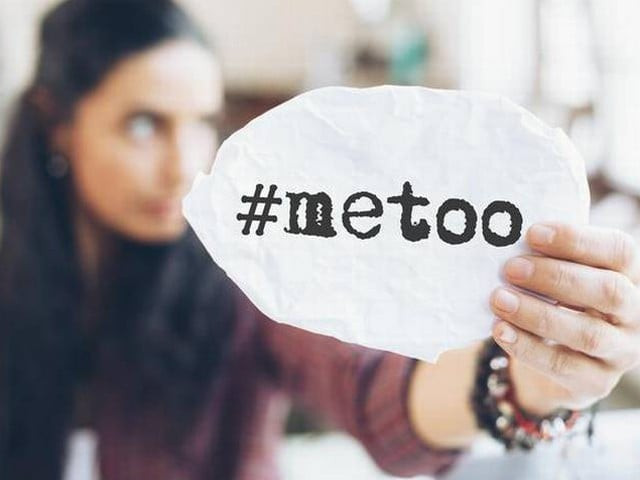
PHOTO COURTESY: THE HINDU
But Leanne Atwater, a management professor at the University of Houston, and her colleagues were skeptical. “Most of the reaction to #MeToo was celebratory and assumed women were really going to benefit,” she said. “We said, ‘We aren’t sure this is going to go as positively as people think — there may be some fallout.”
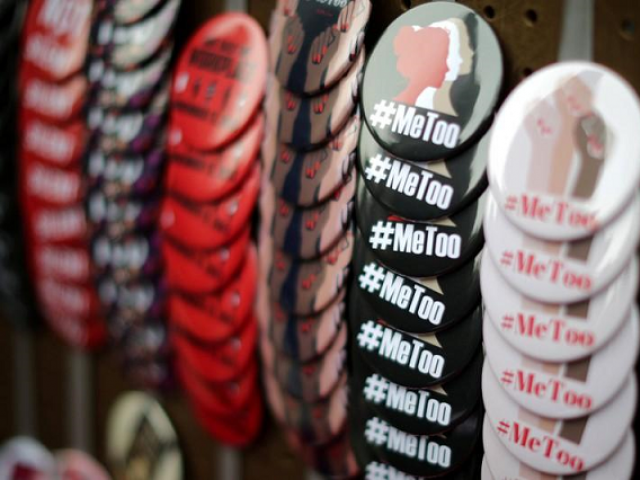 The probe on the back of the online #MeToo movement against sexual misconduct that has made waves around the world.PHOTO: REUTERS
The probe on the back of the online #MeToo movement against sexual misconduct that has made waves around the world.PHOTO: REUTERSTo determine if they were indeed, right, Atwater and her team begawn a study in early 2018. They created two surveys — one for men and one for women — and distributed them to workers in a wide range of industries, collecting data from 152 men and 303 women in all, reported Harvard Business Review.
First the researchers sought to understand if men and women had different views about what sexual harassment is, mainly because the men accused in the movement frequently claim they didn’t understand how their actions were being perceived, while women who report it are sometimes deemed overly sensitive. The surveys described 19 behaviours, like continuing to ask a female subordinate out after she has said no, emailing/texting sexual jokes to a female co-worker and commenting on a her looks. They also asked participants whether they amounted to harassment.
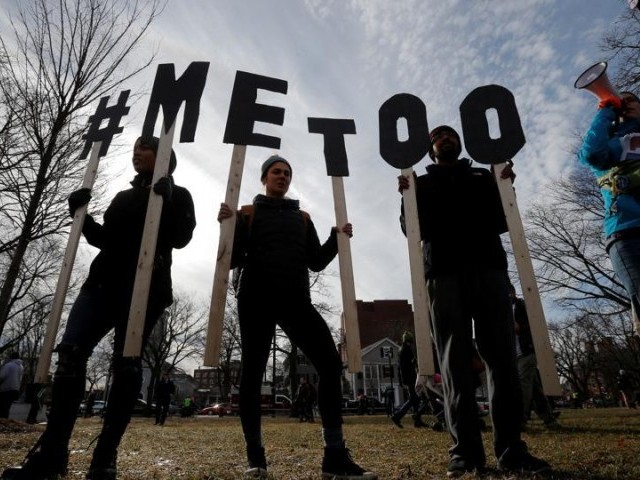 Demonstrators spell out ‘#METOO’ during a women's march in Cambridge, Massachusetts. PHOTO: REUTERS
Demonstrators spell out ‘#METOO’ during a women's march in Cambridge, Massachusetts. PHOTO: REUTERSFor the most part, the men and women agreed. For the three items on which they differed, men were more likely than women to label the actions as harassment. “Most men know what sexual harassment is and most women know what it is,” Atwater explained. “The idea that men don’t know their behaviour is bad and that women are making a mountain out of a molehill is largely untrue. If anything, women are more lenient in defining harassment.”
Next, the team explored the incidences of harassment in a workplace. 63% of women reported having been harassed, with 33% experiencing it more than once. Age, the supervisor’s gender, whether the woman did a blue-collar or a white-collar job, and whether she was married had no bearing on her being harassed.
But only 20% of women who had been harassed reported it. Amongst those who didn’t, the main deterrents were fear of negative consequences and being labelled troublemakers. 5% of men admitted to having harassed a colleague and another 20% said that “maybe” they had done so.
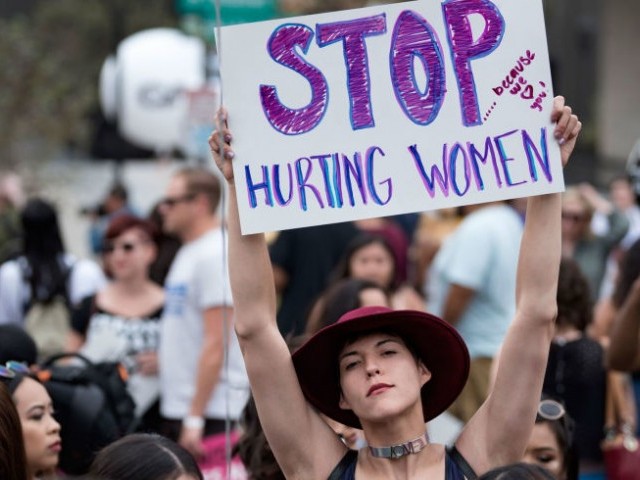 PHOTO: AFP
PHOTO: AFPBut the study’s biggest revelation has to do with the backlash of the #MeToo movement. The respondents said they had expected to see some positive effects. For instance, 74% of women said they thought they would be more willing now to speak out against harassment and 77% of men anticipated being more careful about potentially inappropriate behaviour.
But more than 10% of both men and women said they thought they would be less willing than before to hire attractive women. 22% of men and 44% of women predicted that men would exclude women from social interactions such as after-work drinks and nearly one in three men thought they would be reluctant to have a one-on-one meeting with a woman. 56% of women said they expected that men would continue to harass but take more precautions against getting caught and 58% of men predicted that men in general would have greater fears of being unfairly accused.
Because the data was collected soon after the #MeToo movement gained momentum and much of it focused on expectations, the researchers conducted a follow-up survey (with different people) in 2019. This revealed a bigger backlash than respondents had anticipated.
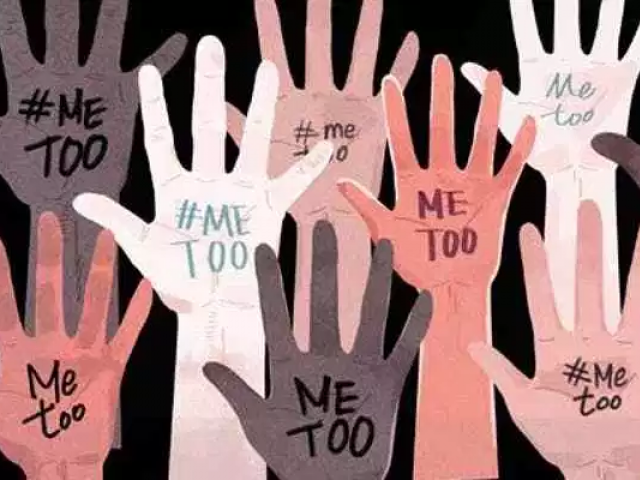 PHOTO: FACEBOOK
PHOTO: FACEBOOKAbout 19% of men said they were reluctant to hire attractive women, 21% were reluctant to hire women for jobs involving close interpersonal interactions with men (jobs involving travel, for example), and 27% said they avoided one-on-one meetings with female colleagues. Only one of those numbers was lower in 2019 than the numbers projected the year before.
Atwater believes some of the behaviours are manifestations of what is sometimes called the Mike Pence rule — a reference to the US vice president’s refusal to dine with female colleagues unless his wife is present. “I’m not sure we were surprised by the numbers but we were disappointed,” shared Rachel Sturm, a professor at Wright State University who worked on the project. “When men say, ‘I’m not going to hire you, I’m not going to send you travelling, I’m going to exclude you from outings,’ those are steps backward.”
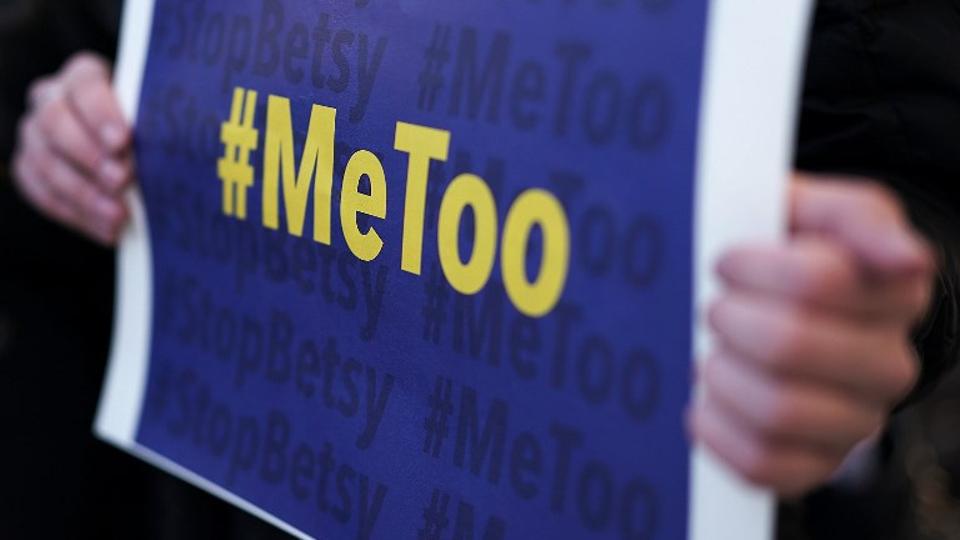 #MeToo. PHOTO AFP
#MeToo. PHOTO AFPThe researchers have several recommendations for organisations looking to reduce harassment, a number of which involve prevention training. Their study shows that traditional sexual harassment training has little effect, perhaps because much of it focuses on helping employees understand what constitutes harassment and the data shows they already do.
Instead, the researchers say, companies should implement training that educates employees about sexism and character. Their data shows that employees who display high levels of sexism are more likely to engage in negative behaviours and training can reduce that. Their data also shows that people of high character — those who display virtues such as courage — are less likely to harass and more likely to intervene when others do.
Have something to add to the story? Share it in the comments below.



















COMMENTS
Comments are moderated and generally will be posted if they are on-topic and not abusive.
For more information, please see our Comments FAQ